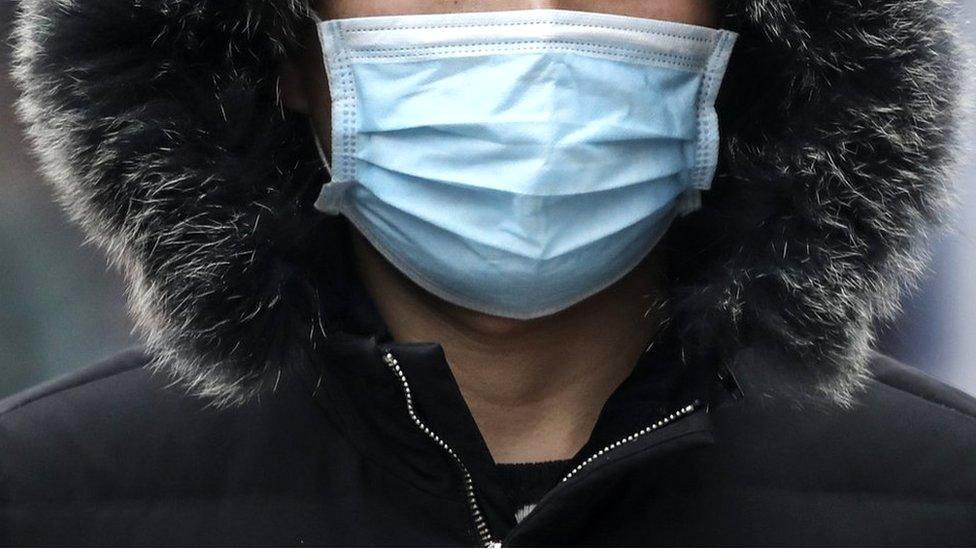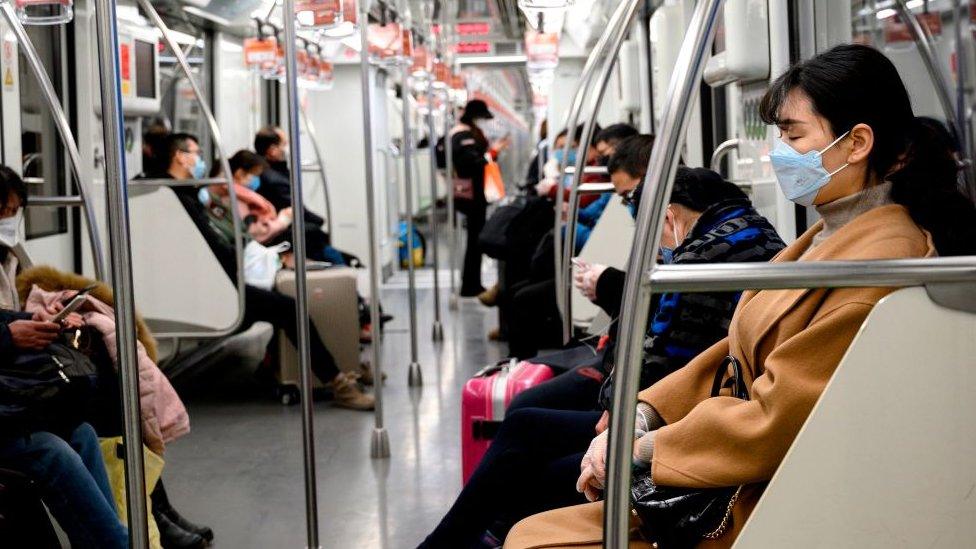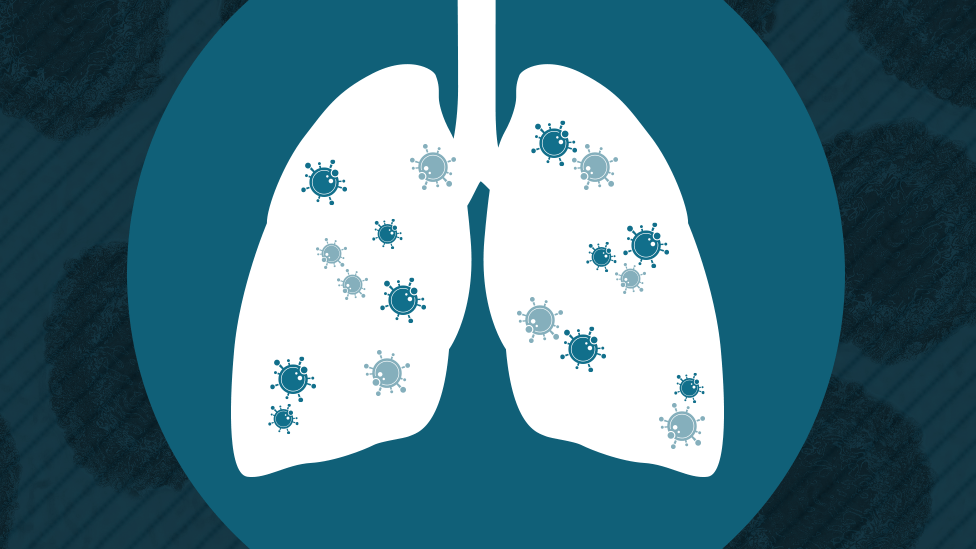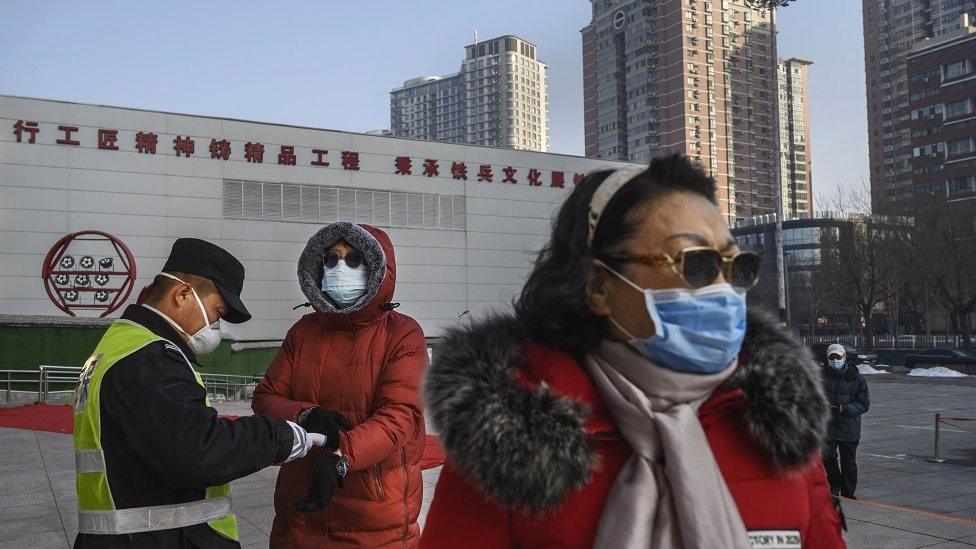Coronavirus prankster faces five-years' jail for Moscow metro stunt
- Published

The incident in Moscow was described as "a prank that got out of control" (stock photo)
Police in Moscow have arrested a man suspected of imitating a coronavirus victim and collapsing on a metro train as a prank, officials say.
In footage posted online, passengers are seen trying to assist a man in a mask as he stumbles and falls to the floor of a busy train carriage.
They then rush away when he appears to suffer serious convulsions.
The suspect was detained on suspicion of criminal hooliganism and faces up to five years in prison if convicted.
Russia's interior ministry confirmed the arrest on Monday, adding that a search was under way to find two people who were heard shouting in the video that the suspect was infected with the new coronavirus.
"Accomplices shouted phrases about the presence of a dangerous viral infection... provoking a panic among passengers," a spokeswoman for the ministry, Irina Volk, said in a statement.
Russia's Vesti news website tweeted the footage, describing the incident as a "prank that got out of control".
Allow X content?
This article contains content provided by X. We ask for your permission before anything is loaded, as they may be using cookies and other technologies. You may want to read X’s cookie policy, external and privacy policy, external before accepting. To view this content choose ‘accept and continue’.

The video, which was initially posted on a website called Kara.prank on 2 February, has since been removed from the site.
A lawyer representing the suspect said his client had voluntarily agreed to be interviewed after he was contacted by police.
"He is in shock. He came of his own accord, he didn't hide. He did not expect all this. The interrogating officer himself stated that the case will probably be dismissed," Russian news site Gazeta quoted the lawyer as saying.
The coronavirus outbreak has so far killed more than 1,000 people in China and has spread to more than 20 countries, including Russia, which has reported two cases.
Russian authorities have quarantined at least 144 people in a fenced-off facility in Siberia, near the location where one of the infected people is receiving treatment.
Protective face masks are used to help limit infection. Experts, however, are sceptical about their effectiveness.
The main signs of infection are fever (high temperature) and a cough as well as shortness of breath and breathing difficulties.
Catching coughs and sneezes in a tissue, binning it and washing your hands can minimise the risk of spreading the disease.

Read more about the coronavirus and its impact:
SHOULD WE WORRY? Our health correspondent explains
YOUR QUESTIONS: Can you get it more than once?
WHAT YOU CAN DO: Do masks really help?
UNDERSTANDING THE SPREAD: A visual guide to the outbreak
Coronavirus: Shanghai's deserted streets and metro, filmed in February
- Published11 February 2020

- Published14 March 2020

- Published11 February 2020
